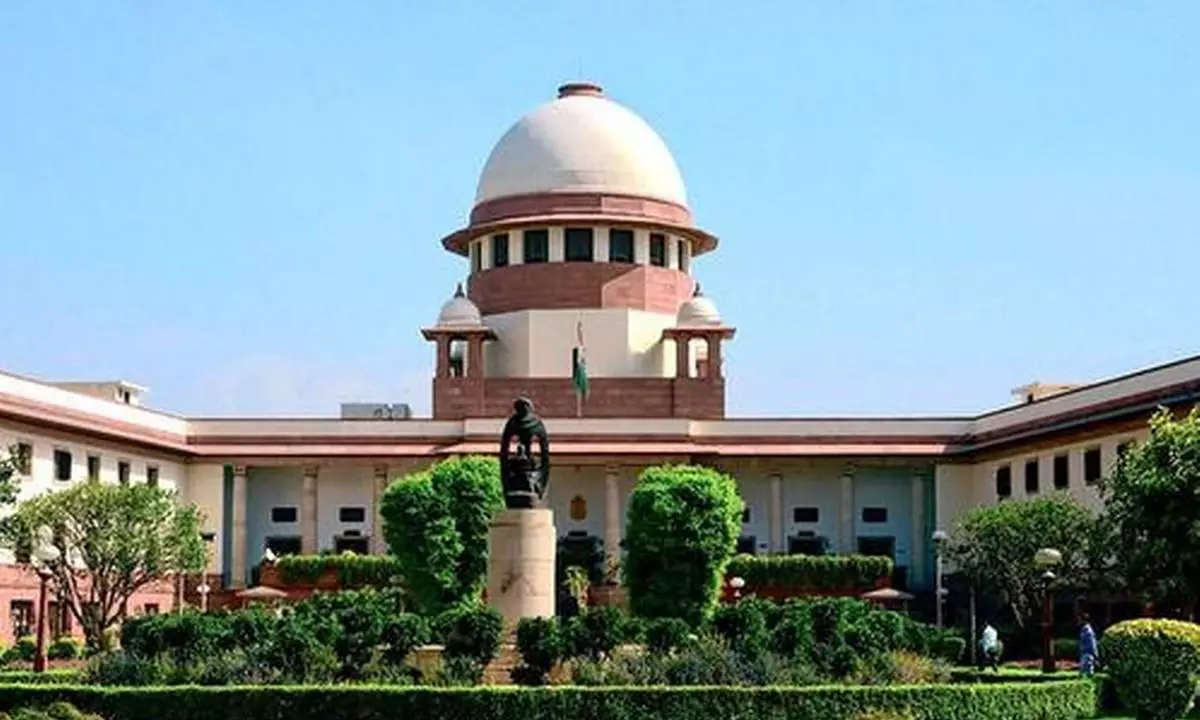
Ambit and interpretation of 'sedition'
text_fieldsThe remarks by the Supreme Court bench headed by Justice YV Chandrachud the other day that the definition of 'sedition' needs a relook and 'some guidelines must be set' 'particularly in the context of the right of the electronic and print media to communicate news and information', are vital and serious in the national perspective. The highest court has reminded that the ambit and parameters of the sedition law, which was framed during the colonial era, have to be interpreted in line with the new situation, adding in effect that there should be room for print and electronic media to air views "even those that may be critical of the prevailing regime in any part of the nation". The bench referred to Sections 124-A (sedition) and 153-A (Promoting enmity between different groups) and remarked that these provisions need new interpretation and that actions under them should be set within defined lines. The apex court's observations came while hearing a petition related to the police case filed against TV channels TV5 and Andhra Jyothi of Andhra Pradesh which broadcast the criticisms by the dissident MP of YSR Congress Raghu Rama Krishna Raju against the state government's failure in controlling the spread of Covid. The court stayed the case charged by the police under these sections.
Although the court's action in the case is limited to the press-muzzling action of Jagan Mohan Reddy of Andhra, it needs to be remembered that the country has seen frequent repetitions of such actions. In the forefront of such anti-democratic steps are the governments led by BJP who invoke such laws against those not to their liking in general and the media in particular. It is worth recalling that when a man was killed during the united farmer's agitation on the Republic Day, prominent journalists who reported the incident including Mrinal Pande, Rajdeep Sardesai, Zafar Agha were booked under sedition law by the police of UP and Madhya Pradesh. Shashi Tharoor, MP also figures in the BJP governments' list of guilty of 'sedition'. And the same sedition law was used to charge noted journalist and editor of 'The Wire', Siddharth Varadarajan. A journalist from Kerala Siddique Kappan, was arrested by the police of UP ruled by Yogi Adityanath, while he was on his way to Hathras, in search of news stories following the brutal abuse and killing of a Dalit woman by upper caste men. He has been put in Mathura jail since October 5, and is being subjected to inhuman treatment ever since. And the main offence charged again is sedition.
In India, which takes pride as a secular democracy, such dictatorial acts are on the increase instead of being corrected. That was what prompted International Press Institute and International Federation of Journalists have to convey to the government of India their deep concern over slapping of sedition charges against journalists. In the country of Narendra Modi who, within a month from taking office in 2014 said to the nation that democracy will not survive if we do not guarantee freedom of speech and expression, it is when his party is continuing in office that sedition charges are copiously invoked against the media and mediapersons. Although the Supreme Court has through several judgements emphasised that criticising government actions is never a crime, that dictum is seldom honoured. In the view of the sangh parivar, every one other than or opposed to itself is anti-national and a threat to national security. The country seems to be gearing for such a dark era with such a threat looming large. The dangerous lesson that the YSR Congress chief minister's action represents now is that the malady of the BJP, of hounding media that question a ruling establishment's acts and deeds, is spreading to non-BJP chief ministers too. It is such a bleak scenario about media freedoms, with little respect for democratic values and human rights, that has made India slip below to the 142nd place in global media freedom ranking. It is both shocking and shameful that our democracy stands at a low rank of 142 among 180 countries whose media freedom performance is rated every year by the international agency Reporters Without Borders, based on well defined parameters. Even Nepal, which is ruled by Maoists is ranked 106 and Sri Lanka 127. If this dismal state of affiars needs to be changed, one of the priority items of action is, as the Supreme Court has pointed out, to redefine the scope and criteria of IPC 124A and 153A with a fair and just interpretation. The reform in law has to be such that governments with dictatorial bent will not be able to misuse it. It is also worth remembering that no reform can substitute people's eternal vigilance and will power.






















